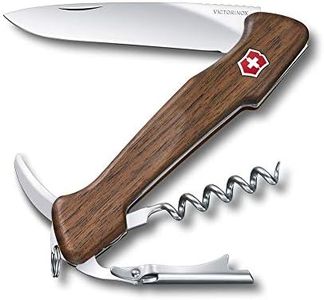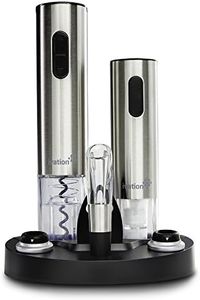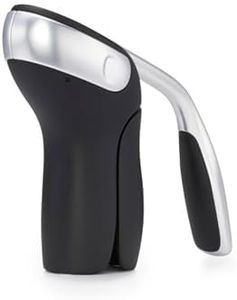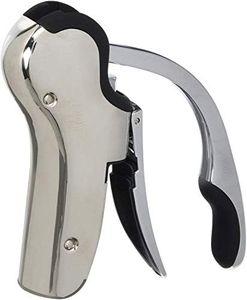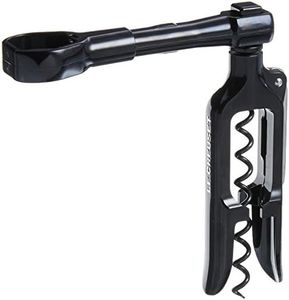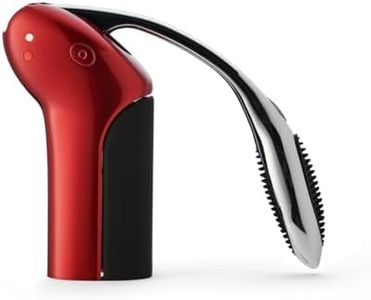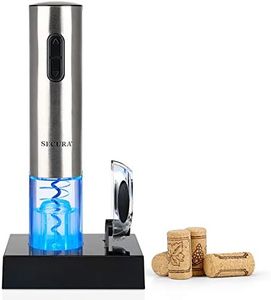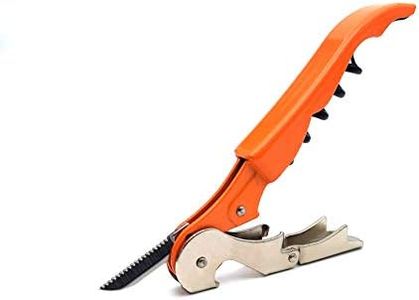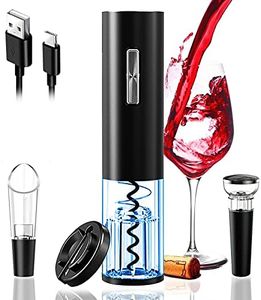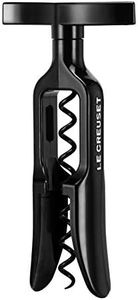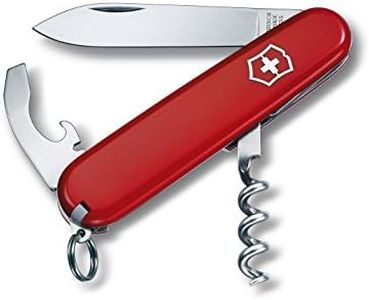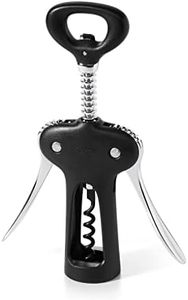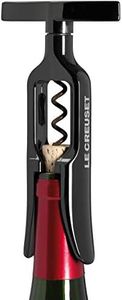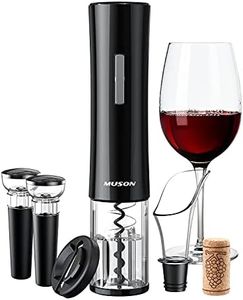We Use CookiesWe use cookies to enhance the security, performance,
functionality and for analytical and promotional activities. By continuing to browse this site you
are agreeing to our privacy policy
10 Best Wine Bottle Openers
From leading brands and best sellers available on the web.By clicking on a link to a third party's website, log data is shared with that third party.
Buying Guide for the Best Wine Bottle Openers
Choosing the right wine bottle opener can make opening wine bottles much easier and more enjoyable. There are various types of openers, each suited for different preferences, physical abilities, and usage scenarios. Understanding the key features can help you pick one that matches your needs, whether you open wine only occasionally or entertain guests often. Consider how effortless you want the process to be, whether you value traditional or modern designs, and the kinds of bottles you typically open.Opener TypeThe type of wine opener determines how you use it and the level of effort required. Common types include manual corkscrews, winged openers, waiter's friends (also called wine keys), lever-based models, and electric openers. Manual corkscrews are compact, but require more strength and skill; winged openers are easier to use, making them good for most people; waiter's friends are portable and favored by professionals, but have a learning curve; lever-based and electric models are easiest and require the least effort, great for those who may struggle with manual tools. Consider how frequently you open wine and your comfort level with each mechanism when deciding.
Build MaterialWine bottle openers can be made of metal, plastic, wood, or a combination. Metal, especially stainless steel, is durable, rust-resistant, and often longer-lasting. Plastic parts can make an opener lighter but sometimes less sturdy. Wood elements are often decorative and provide a classic touch. If you plan to use the opener frequently, favor metal for longevity. For occasional or travel use, lighter options may be sufficient.
Ease of UseSome wine openers are designed to be very user-friendly, with ergonomic handles, non-slip grips, and minimal force required. Others may need more twisting or pulling, which can be hard if you have limited hand strength or dexterity. Look for features like comfortable handles, simple operation, or even electric functionality if you prefer minimal effort. If you have arthritis or weakness in your hands, prioritizing ease of use is essential.
Size and PortabilityOpeners vary in size from compact pocket models to larger countertop devices. A smaller, folding opener is easy to take on picnics or trips, while larger styles may live on your kitchen counter. If you need the opener for travel, dinners outside, or restaurants, portability is important. For home use only, size may matter less unless you have limited storage.
Extra FeaturesSome openers come with extra tools like foil cutters, bottle openers for other beverages, or even built-in stoppers. These can add convenience, especially if you want an all-in-one gadget. Decide if these extras are useful for you, or if you prefer a simpler tool focused solely on opening wine.
Maintenance and CleaningAn opener with fewer moving parts is usually easier to clean. Stainless steel and simple mechanisms can be rinsed quickly, while complex levers or electric models may need special care or batteries. If you want low-maintenance, choose a straightforward design with easy-to-clean surfaces.
